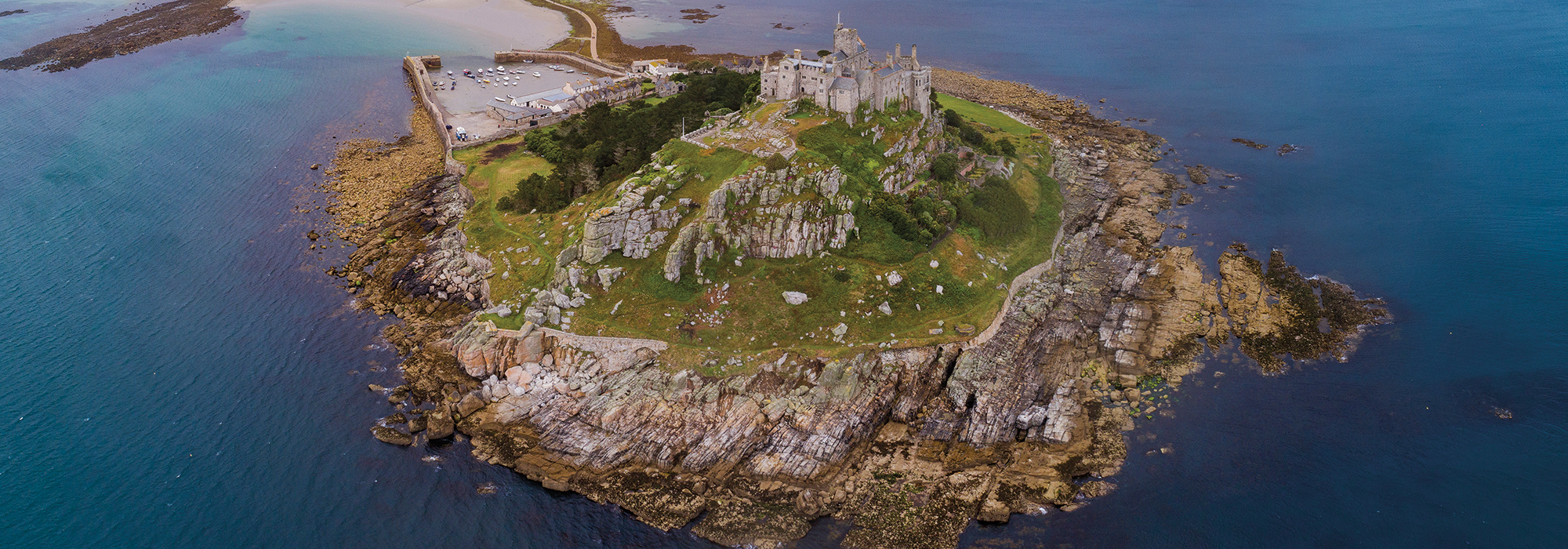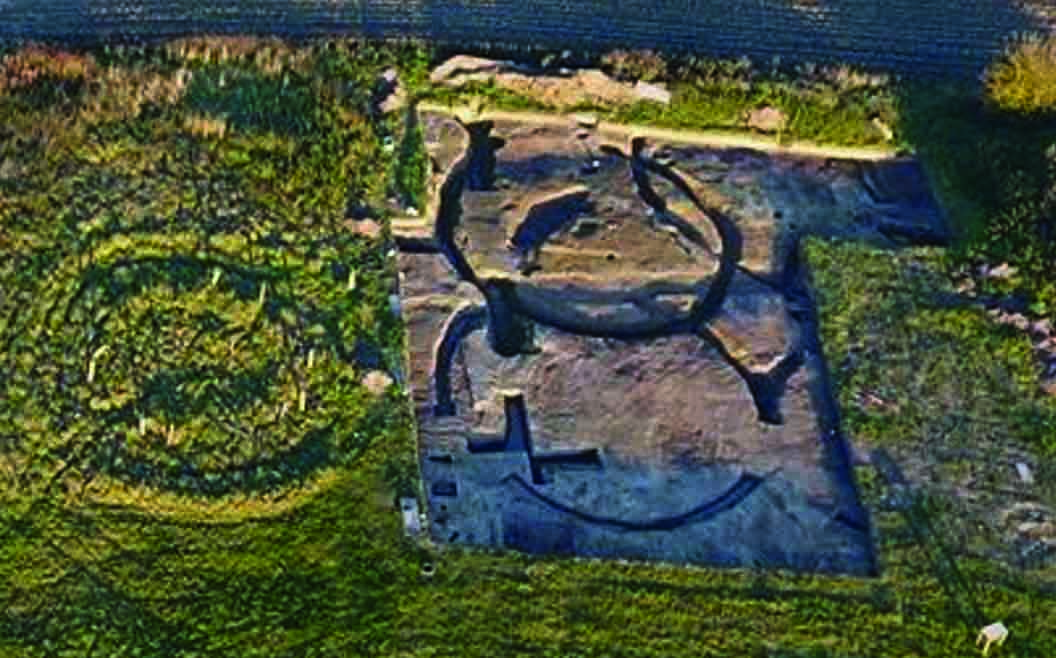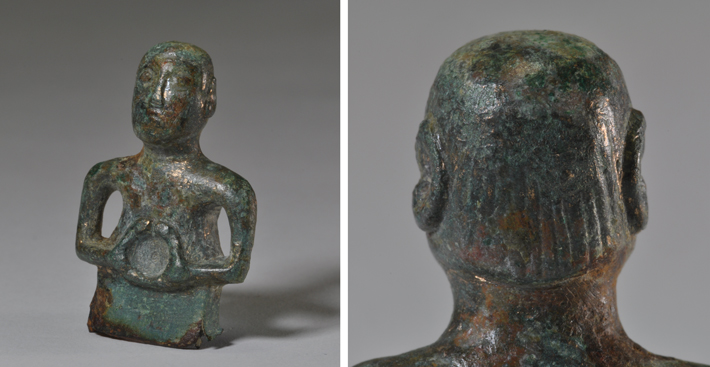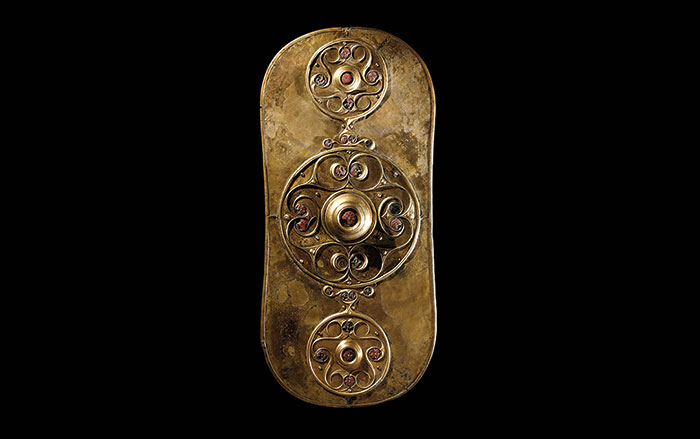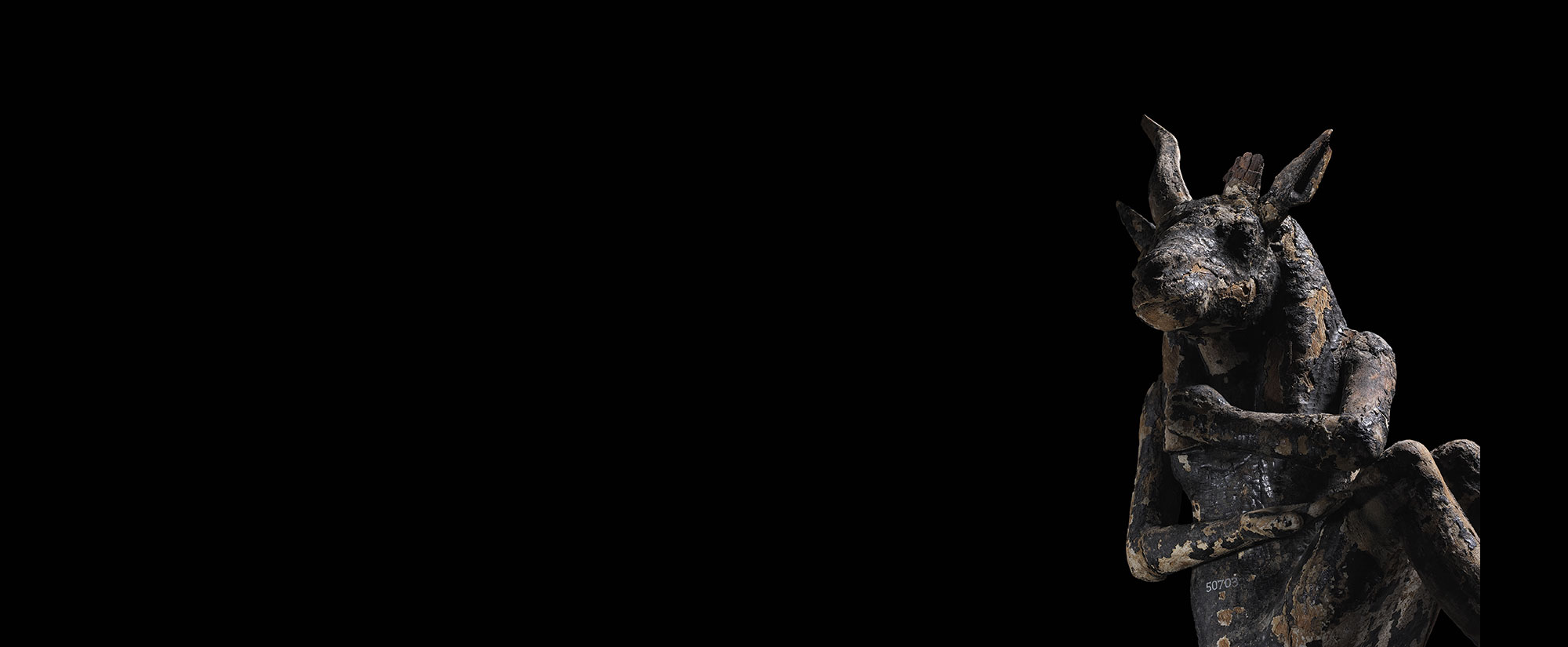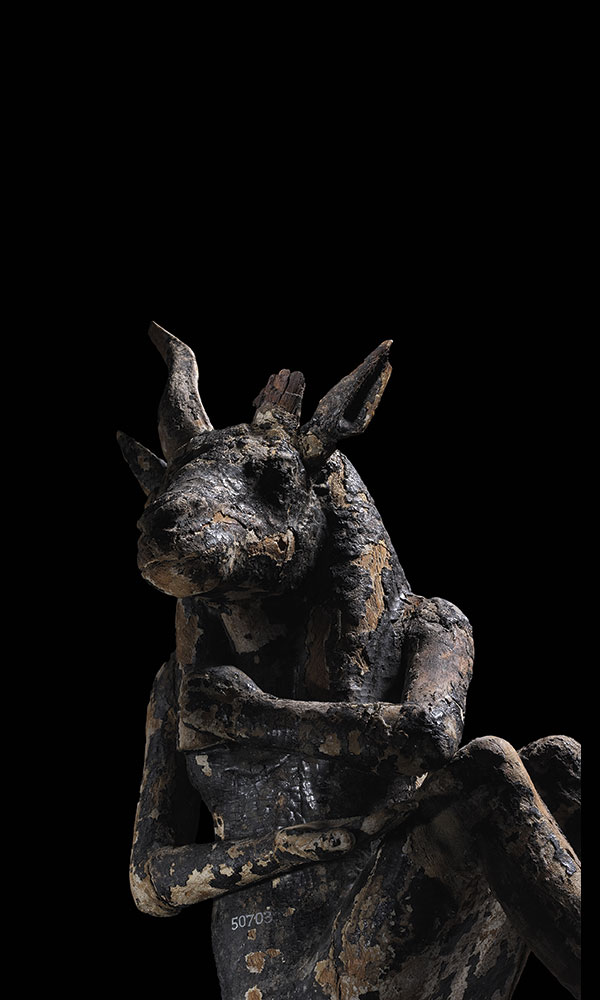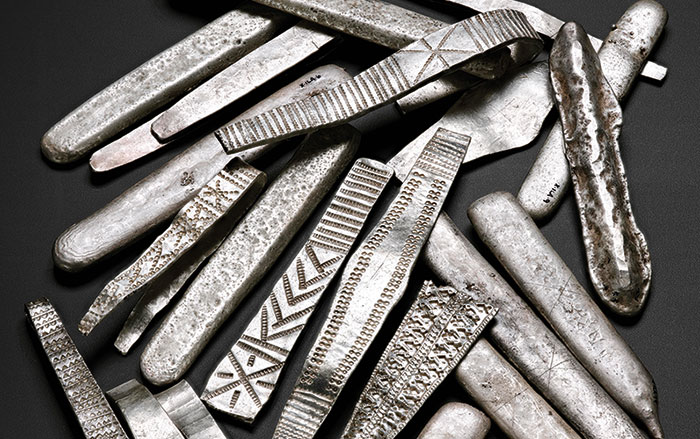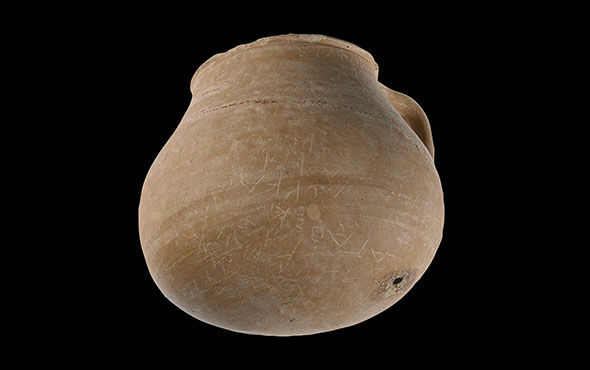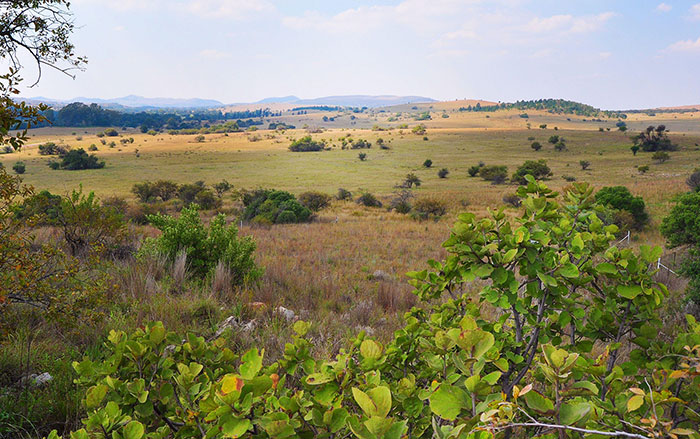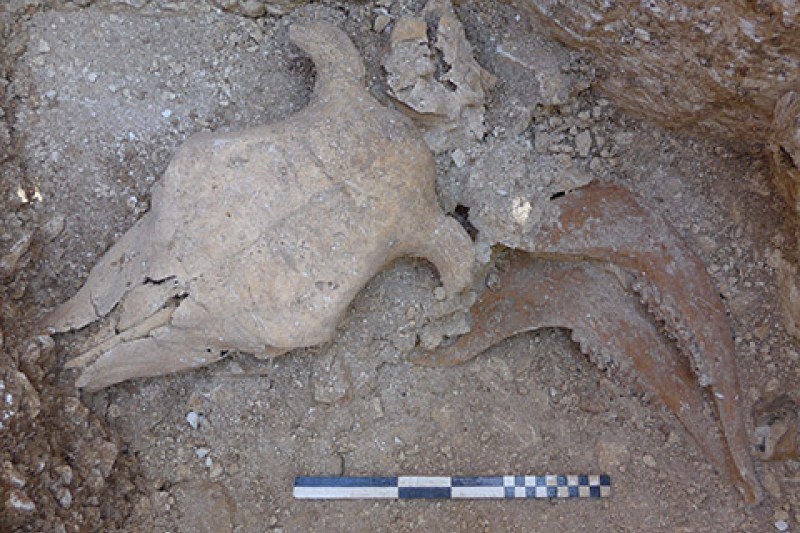
DORSET, ENGLAND—According to a statement released by Bournemouth University, the remains of people placed in crouched positions in oval-shaped pits have been uncovered at a settlement site in southwestern England dated to about 100 B.C. Such storage pits were usually filled with grain in Iron Age Britain, while the dead were cremated or placed in rivers, explained archaeologist Miles Russell. Animal parts in the burials suggest the dead had been buried with joints of meat, while pottery in the burials is thought to have held drinks. The amount of meat in the pits, Russell added, would have been enough to feed the settlement’s residents for weeks. Sometimes the animal parts were mixed—for example, a cow’s head had been placed on the body of a sheep, he explained. Analysis of the graves could offer insights into the inhabitants’ belief systems, he said. Samples of the human bones will be analyzed before they are returned to the ground. To read about Dorset's famous Cerne Abbas Giant chalk figure, go to "Man of the Moment."


